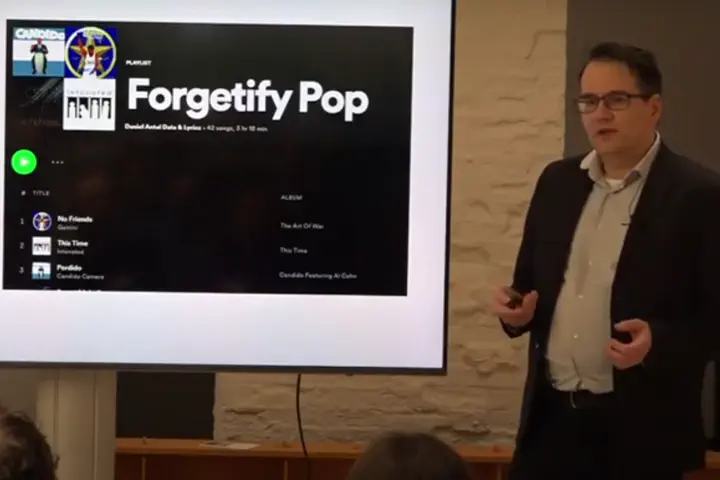Big Data for All: Building Collaborative Data Observatories
From the music ecosystem to further use cases
Abstract
Big data creates injustices, because only the biggest corporations, universities and governments can sustain long, systematic, and well-organized data collection. Reprex builds collaborative data ecosystems, communities, that can share resources and access legally open but not available data sources. Our flagship products are the Digital Music Observatory and Listen Local, a system that tries to prevent global platforms colonizing local ecosystems with AI.
Reprex’s co-founder, Daniel Antal talked in the Eindhoven Innovation Café about these issues. You can watch the recorded version of the the livestream that starts at 5 minutes and 22 seconds:
This is a past event. Check out our forthcoming events or write to Daniel Antal or to antaldaniel. Or send an email.
The event invitation text and links
Big data and AI creates inequalities. It puts historically marginalized people, like ethnic minorities, and womxn, at a disadvantage. Because AI and checking on AI require plenty of data, usually only giant corporations, the wealthiest governments, and university entities can make it work for them. Reprex is a Hague-based, international startup that wants to impact various sustainable development goals by enabling smaller organizations to join their smaller datasets, use open data, create linked available data, and collaboratively make a change.
Reprex is a finalist for the Hague Innovation Award for impact startup (please 🙏, vote for us!). Daniel Antal, one of the co-founders, will talk about their approach to building an international coalition of music organizations to pool data and challenge data monopolies using organizational techniques, a collaboration ethos, and data from the open-source developer world.
Using the example of independent music creators, who often find themselves in a position where it is more expensive to claim their money from global platforms, he will talk about how to reduce inequalities in the world of big data and AI with collaboration on web 3.0. In the Q&A he will take questions on how to apply their know-how, and generally linked open data to other art+tech or creative segments or problems for which everybody is too small, like meeting the Paris Accord greenhouse gas targets bit by bit, small company by small company.
In the Q&A, we can discuss many things
- How can Reprex help an individual creator in music, or in fashion and design, or any other area?
- What sort of help it can give to researchers, research institutes, specialist consultancies, law firms, and other knowledge-based actors?
What sort of partners is Reprex looking for in Eindhoven?
Check out our projects
- Digital Music Observatory and Listen Local
- Cultural & Creative Sectors and Industries Observatory and short call for potential partners.
- Green Deal Data Observatory and simple, connected, financial and sustainability reporting for creative enterprises and others
Reprex: the impact startup
- Check out our accomplishments since the foundation in 2020
